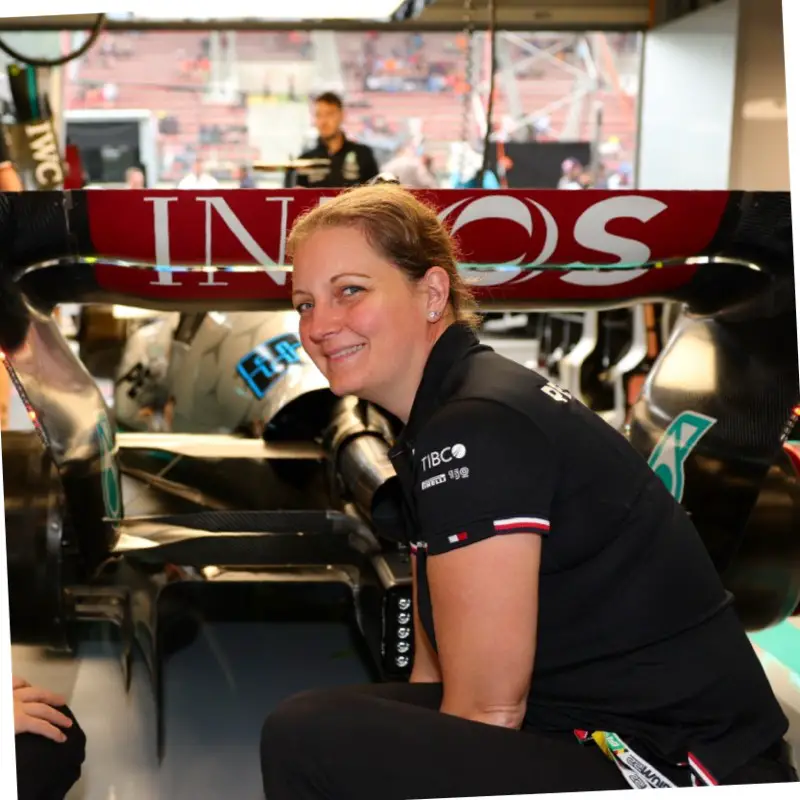In the high-pressure world of Formula One racing, reliability is paramount. The F1 Reliability Engineer is a vital member of the team, responsible for ensuring that the car is safe, robust, and able to perform at the highest level.
The role is demanding, requiring a deep understanding of the complex machinery that powers the car, as well as an ability to work under extreme pressure. In this article, we delve into the world of the reliability engineer in F1, exploring the unique challenges they face and the strategies they use to overcome them.
We’ll hear from experts in the field, including powertrain engineers, who will share their insights on how they harness the power of F1 hybrid engines to maximize performance while maintaining the highest levels of safety and reliability.
Whether you’re a fan of F1 racing or simply interested in the fascinating world of engineering, this article is sure to provide a unique perspective on the high-stress world of the reliability engineer. So buckle up and get ready to go behind the scenes of one of the most demanding and exciting industries in the world.
What Does An F1 Reliability Engineer Do?

In the fast-paced world of Formula 1 racing, reliability is key. And it’s the Reliability Engineer who is responsible for ensuring that the car is able to withstand the extreme stresses it faces on the track.
The Reliability Engineer’s role involves testing and analyzing the car’s components to identify any potential issues before they become major problems. They work closely with other engineers, including the Aerodynamics Engineer and Powertrain Engineer, to ensure that the car is performing at its best.
The Reliability Engineer must consider a wide range of factors when testing the car’s components, including temperature, vibration, and stress.
Reliability Engineers Use Simulation Tools
They use advanced simulation tools to model the car’s performance under different conditions and test different designs to identify the most reliable components.
The reliability of the car is crucial to its success in racing. A single component failure can result in a DNF (did not finish) and cost the team valuable points in the championship.
The Reliability Engineer must work closely with the mechanics to ensure that the car is well-maintained and that any issues are quickly resolved. In addition to testing and analyzing the car’s components, the Reliability Engineer is also responsible for developing and implementing maintenance schedules.
They must ensure that the car is serviced and inspected regularly to identify any potential issues before they become major problems. The high-stress world of the Reliability Engineer in F1 can be incredibly demanding.
Reliability Engineers Work inside Tight Dealines
They must work under tight deadlines and make quick decisions under pressure. They must also be able to work effectively as part of a team, communicating clearly with other engineers and mechanics to ensure that the car is performing at its best.
Despite the challenges, the Reliability Engineer plays a crucial role in the success of a Formula 1 team. By ensuring that the car is reliable and well-maintained, they help to maximize the team’s chances of winning races and competing for the championship.
In conclusion, the Reliability Engineer is a vital part of any Formula 1 team. Their role is to ensure that the car is able to withstand the extreme stresses it faces on the track and that any potential issues are identified and resolved quickly.
The high-stress world of the Reliability Engineer in F1 is not for the faint-hearted, but for those who are up to the challenge, it can be an incredibly rewarding career.
Reliability Engineer Qualifications
To become a Reliability Engineer in Formula 1, one typically needs a degree in mechanical engineering or a related field.
Relevant work experience in the automotive or motorsport industry is also highly valued, as is knowledge of advanced simulation tools and data analysis techniques.
Strong problem-solving skills, attention to detail, and the ability to work under pressure are also important qualities for anyone considering a career as a Reliability Engineer in F1.
Reliability Engineer Salary
Possible ranges for the annual salary
$80,000 – $140,000
These are only rough estimates and may not reflect the actual salary of a F1 reliability engineer in 2023.
The salary of a F1 reliability engineer may also depend on other factors such as bonuses, incentives, benefits, experience, expertise, and team. F1 reliability engineers also have to work long hours and travel frequently, which may affect their quality of life.


Your articles are extremely helpful to me. May I ask for more information?